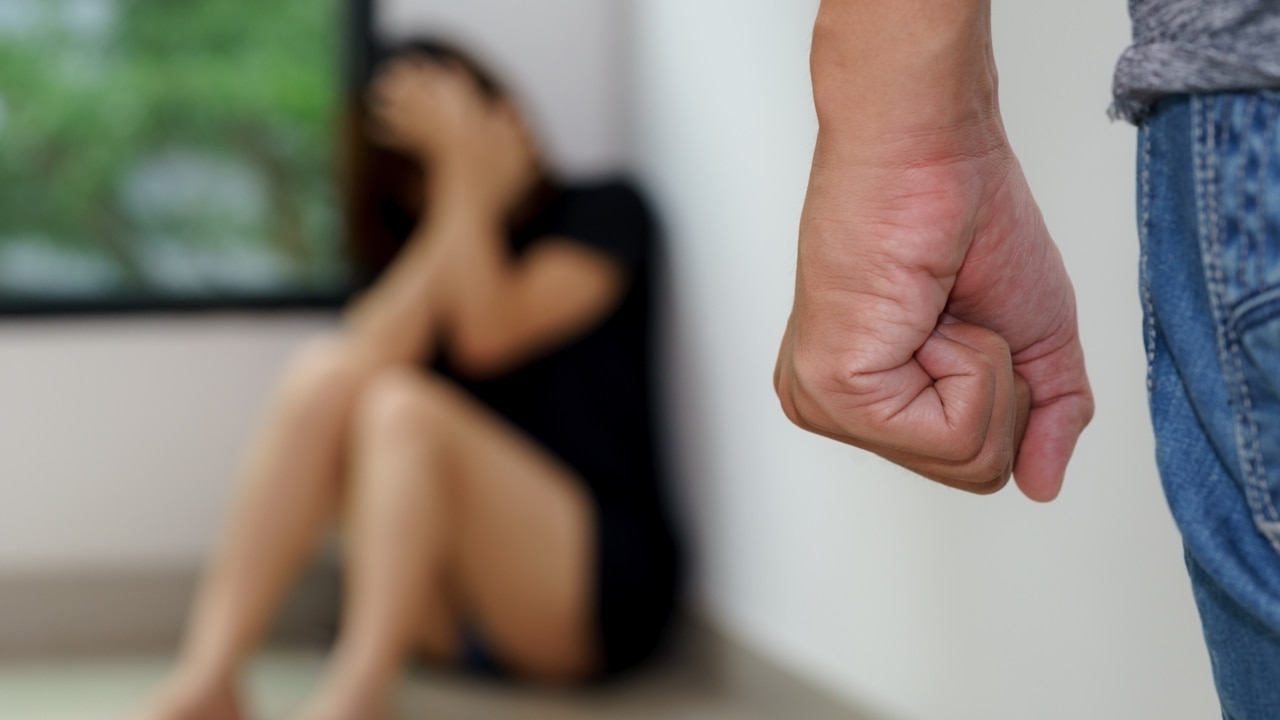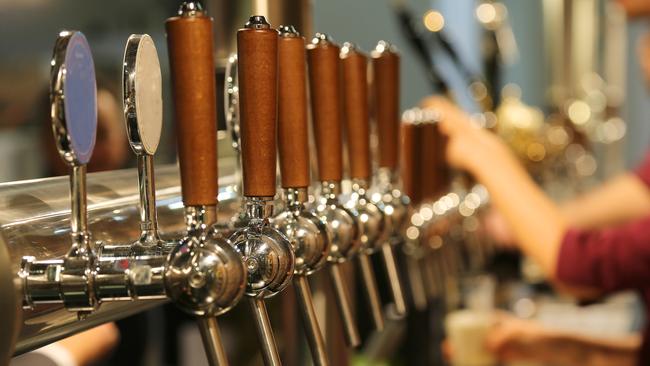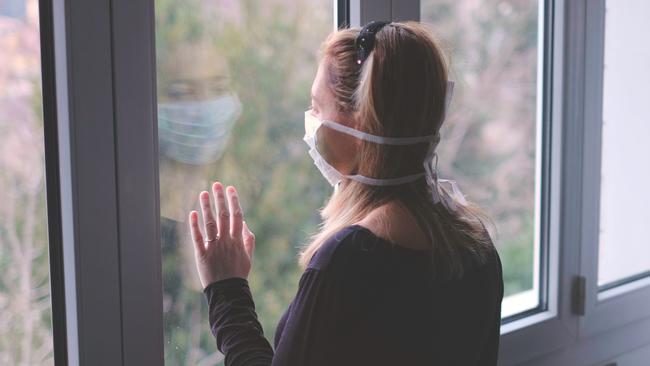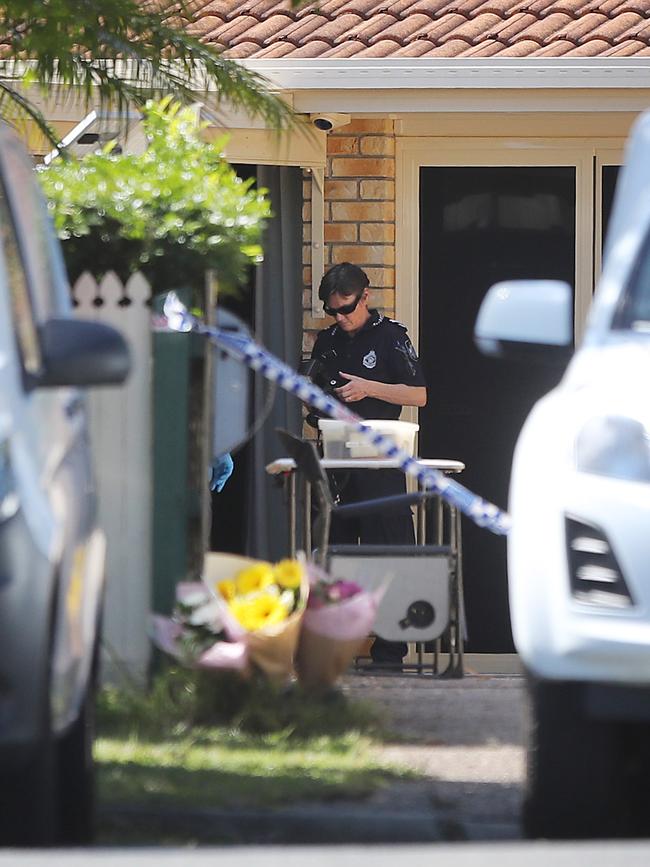Easing coronavirus restrictions and a rising jobless rate could increase domestic violence
As restrictions relax, football restarts and pubs reopen, the safety of one vulnerable group will be threatened even further. We most do more to protect them, writes Our Watch’s Patty Kinnersly.

Rendezview
Don't miss out on the headlines from Rendezview. Followed categories will be added to My News.
As states start to relax COVID-19 restrictions, Australians will celebrate seeing family and friends, and in coming months may be watching footy or heading to the pub.
For women who are living with violence, there will be no “new normal”, but rather a new stage of crisis and danger.
For some, the lifting of restrictions may trigger an escalation of abuse as perpetrators use violence in response to the loss of control they have been able to exert in the home during lockdown.
There are also concerns that it will also be harder for some women to leave an abusive partner, with ABS data showing that women have had the biggest job losses of 8.1 per cent in March and April due to COVID-19, and an overall jobless rate of 6.2 per cent in April, which may restrict their financial independence.
In the last fortnight alone, four women have been killed by a partner or an ex-partner. This has brought the national toll of 17 women tragically being killed this year, according to Destroy the Joint.

In order to change this ongoing national emergency, with the added pressures of COVID-19, it’s crucial we look to the established evidence on what drives and prevents violence against women.
In some cases, and particularly among men who hold the view that women are not equal to men, economic and social stress factors can certainly trigger or exacerbate violence against women. But stress does not cause violence. And it must never be seen as an excuse for men’s use of violence.
We know from the evidence that gender inequality is the driver for violence against women. Men’s choices to use violence are underpinned by a disrespect for women, a belief that women are not equal and a perceived right to power and control over them.
Violence against women is further driven by social norms that condone, excuse or trivialise men’s violence; by limits to women’s independence; by rigid gender stereotypes that dictate how men and women should ‘be’ or ‘act’; and by forms of male bonding and norms of masculinity that involve aggression and disrespect towards women.
Given crises tend to have a greater impact on women, lead to increases in violence against them, and exacerbate existing inequalities that women face right across society, work to advance gender equality has never been more needed.
Evidence collated by the Gender and Disaster Pod shows us that in Australia and similar countries, relationship violence tends to increase during disasters and also in the aftermath.
After the 2009 Black Saturday bushfires for example, women and social workers provided evidence of increased family violence. But case workers, police and community members tended to sympathise with perpetrators, many of whom had lost everything, were under great stress, or were seen to be ‘heroes’ for fighting the fires. This meant survivors were encouraged to stay silent and ‘wait it out’; in effect men’s violence against women was excused.

Right now, with the COVID-19 health and economic crisis, and the easing of restrictions, we will see a new wave of stressors, and new excuses being made for abuse and violence. Australia’s unemployment rate is predicated to reach 10 per cent as a result of economic fallout, and many people will face increasing financial strain.
As pubs and clubs re-open we may see an increase in harmful alcohol use, and the re-emergence of harmful men’s peer group behaviours, amid social norms that position alcohol use as a coping mechanism, and men’s drinking as an excuse for violence.
Because gender inequality is at the core of the problem, gender equality must be at the heart of the solution.
So much good work is being done to create thriving, gender-equal environments free of violence and disrespect towards women; in schools, workplaces, and public and private life.
During this crisis we can’t let efforts to advance gender equality fall off the national agenda. We must continue to work together – governments and communities – towards this shared goal.
Our health, social and economic responses to this crisis must be carefully designed to make sure they do not further disadvantage or marginalise women.


Our governments must be alert to new and emerging inequalities and introduce specific measures for women who already experience higher rates of violence – such as Aboriginal and Torres Strait Islander women, women with disabilities, and refugee and migrant women.
Workplaces need to do everything possible to provide flexible working arrangements for both men and women – particularly those who are juggling work with caring responsibilities.
The government’s recent funding expansion for frontline telehealth, family violence, and emergency services is welcome and much needed.
But these services cannot and are not designed to stop violence before it starts.
We must also continue and increase our specific efforts to prevent violence against women and advance gender equality. We must do this as part of the recovery process, and far beyond.
From crisis often comes opportunity, and right now, by redoubling our efforts to support women experiencing violence, and to advance gender equality, right across society, we have the opportunity to create a ‘new normal’ in Australia. One that is safer, and more equal for all.
Patty Kinnersly is chief executive of Our Watch, the national organisation to prevent violence against women and their children.
